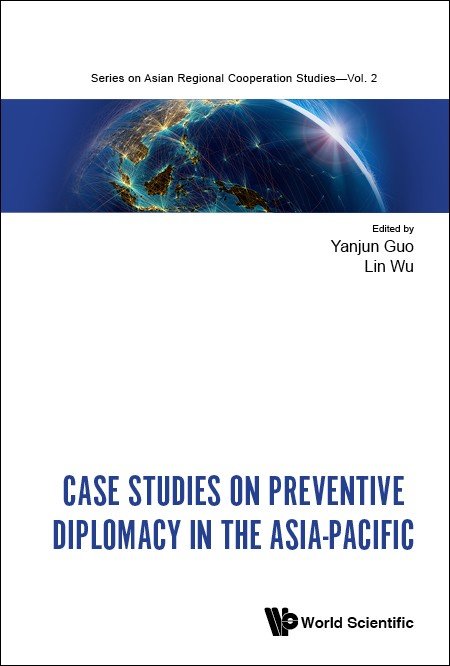System Upgrade on Tue, May 28th, 2024 at 2am (EDT)
Existing users will be able to log into the site and access content. However, E-commerce and registration of new users may not be available for up to 12 hours.For online purchase, please visit us again. Contact us at customercare@wspc.com for any enquiries.
Preventive Diplomacy (PD) has been recognized as a useful tool to address security issues in the Asia-Pacific region. To explore a PD mode compatible with the regional situation step by step on the basis of consensus has become the common will of the regional countries. Since the region is facing various new challenges, this requires innovation in theories and practices of PD. Focusing on the practice of preventive diplomacy, this book conducts empirical and comparative studies on the application of preventive diplomacy in various issue areas and by different countries.
Sample Chapter(s)
Preface
Chapter 1 - China and Responsibility to Protect: Maintenance and Change of its Policy for Intervention
Contents:
- Preface
- About the Editors
- Acknowledgments
- Country Practices:
- China and Responsibility to Protect: Maintenance and Change of Its Policy for Intervention (Liu Tiewa)
- Sino-Russian Border Settlement and Preventive Diplomacy Experience in Eurasia (Ekaterina Koldunova)
- Sino-Japanese relationship: Model Case of Preventive Diplomacy? — Pros and Cons of the Quiet Fence-Mending Process under "Cold Peace" (Takaaki Mizuno)
- Preventive Diplomacy in the South China Sea from a Regional Perspective and China's Role (Wu Lin)
- International Public Opinion on China's Engagement in Conflicts between Afghanistan and Pakistan (Liu Renxue)
- China's Participation in Resolving the Rohingya Crisis between Myanmar and Bangladesh (Zou Benshuo)
- Australia's Role in Implementing Confidence-Building Measures, Preventive Diplomacy and Conflict Resolution in the Asia-Pacific Region (Rory Medcalf)
- Policy Implications of Preventive Diplomacy Conducted by Timor-Leste with Indonesia and Australia (Sukehiro Hasegawa)
- The Peace Process in Myanmar (Wai Lwin Than)
- Issue Areas:
- Tackling the Crisis: Ethnic Conflicts in the ASEAN Region and Preventative Diplomacy (Han Zhili)
- Preventive Diplomacy and Non-Traditional Security Threats: Natural Disasters and the Philippines (R J Marco Lorenzo C Parcon and Julio S Amador III)
- Preventive Diplomacy and Information Communication Technology Security: The Case of International Submarine Cables (Dong Ting)
- The Dilemma of Migration Governance in Southeast Asia and Its Influence on China (Wu Lin)
- The ASEAN Regional Forum's Action-Oriented Preventive Diplomacy Mechanisms in the Rohingya Crisis: Perspectives of ASEAN, China and Japan (Yuji Uesugi, Kwok Chung Wong and Lady Mahendra)
- ASEAN Culture of Prevention and Its Implications on ASEAN–China Socio-Cultural Cooperation (Yang Yue)
- Think Tanks and Preventive Diplomacy in ASEAN Regional Forum (Zhou Shixin)
- Security Issues of the Little Mermaid (Li Yingtao)
Readership: Academics, policymakers, professionals, undergraduate and graduate students interested in preventive diplomacy, ASEAN Regional Forum, international relations, conflict management
























